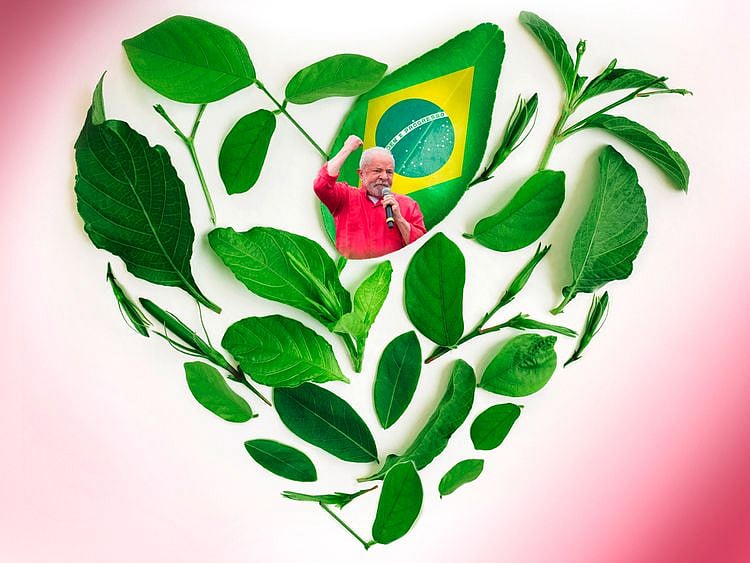Lula’s victory is a win for planet’s ecosystem
Leftwing leader’s return one of the most remarkable comebacks in modern political history

In Brazil, one of the world’s largest democracies and Latin America’s most populous nations, voters went to polls on Sunday to cast their ballots in what they saw as the most important — though admittedly also the most divisive — presidential elections in their modern history, certainly since the country emerged from a military dictatorship in 1985.
The rest of the world, however, saw the election, given its profound implications for the future of the Amazon rainforest, as no less than one that would determine the fate of the planet.
Bolsonaro vs. Lula
Here is Jair Messias Bolsonaro (b. 1955), known simply as Jair Bolsonaro, a former Army officer and graduate of his country’s Negras Military Academy (Brazil’s own West Point), who served a 27-year tenure as a congressman, during which he became known for his hard-right national conservatism — a nationalist variant of conservatism that concentrates on upholding jaundiced views on national and cultural identity — and who, since day one in office as president, on Jan. 1, 2019, began to gut the agencies tasked with protecting the Amazon rainforest, all in favour of the needs of what he called Brazil’s “agribusiness’ and “development”.
And here is Luiz Inacio Lula de Silva (b. 1945), known simply as Luiz Lula, a former labour union leader and metal worker with a fifth-grade education, raised by parents who were farm workers.
True, as president from 2003 through 2010, his administration helped lift reportedly as many as 20 million Brazilian out of poverty, revitalised the nation’s oil industry, elevated Brazil’s profile on the world stage and followed through on his pledge of “net zero” deforestation.
But — yes, there’s a big but here — that same administration was also alleged to have allowed kickbacks to flourish in government, which, after he left office in 2011, resulted in the conviction of his allies in the Workers’ Party, who had profited from it, and in his own conviction for accepting gifts from construction companies bidding on government contracts.
Remarkable comeback
Around 9:00pm on Sunday, Lula was officially declared the winner, and with that win he capped one of the most remarkable comebacks in modern political history — with former president Donald Trump’s earlier plea to Brazilian voters to reject Lula, who he claimed was a “radical left ... who will destroy your country” going unheeded.
Whether Bolsonaro is now destined to seeming obscurity or whether his supporters will, as many Brazil experts suspect, “go to war”, as he had repeatedly urged them to do were he to lose the election, remains to be seen.
Top officials from the White House, Defense Department, State Department and the CIA have in recent weeks reportedly held meetings with and made calls to Brazilian officials to head off any efforts by Bolsonaro to “subvert the results” — or, if you wish, “stop the steal” — of the country’s elections, but it remains equally unclear how effective these interventions will be.
What matters to the world is that Brazil, which holds control of more than half of the Amazon forest, and by definition control over the health of the planet, will now be led by a president with an eye for “net zero” deforestation.
“Because of soaring rates of deforestation under President Bolsonaro, the Amazon ecosystem is on the brink of catastrophe”, editorialised the New York Times on Friday. “The loss of millions of trees has already caused decreased rainfall. Areas not yet turned to ranchland are projected to shift from dense forest into dry savannah as the Amazon reaches a ‘tipping point’ — of spiralling degradation from which there is no return”.
A huge impact
Scary enough? The editorial adds: “This collapse will be felt far beyond the Amazon. Rainfall across two continents, including over California’s agricultural heartlands, comes from the Amazon. Life-saving medicines are derived from its species. Billions of tons of carbon are held in its trees. Our dependence on this ecosystem cannot be overstated”.
In short, Brazilian politics belongs to the Brazilian people, and them alone. But the fate of the rainforest that covers the Amazon basin — a collapse of whose ecosystem we know for sure will cause worldwide drought, famine, disease and more — belongs to the whole of humanity.
Those of us who care about the future of human life on this planet had hoped and prayed, as we watched the election returns on Sunday, that the people of Brazil would make the right choice when they went to the polls that day. They did. And I say to them, from the bottom of my environmentalist’s heart, hats off to you.
Fawaz Turki is a journalist, academic and author based in Washington. He is the author of The Disinherited: Journal of a Palestinian Exile.
Sign up for the Daily Briefing
Get the latest news and updates straight to your inbox
Network Links
GN StoreDownload our app
© Al Nisr Publishing LLC 2026. All rights reserved.